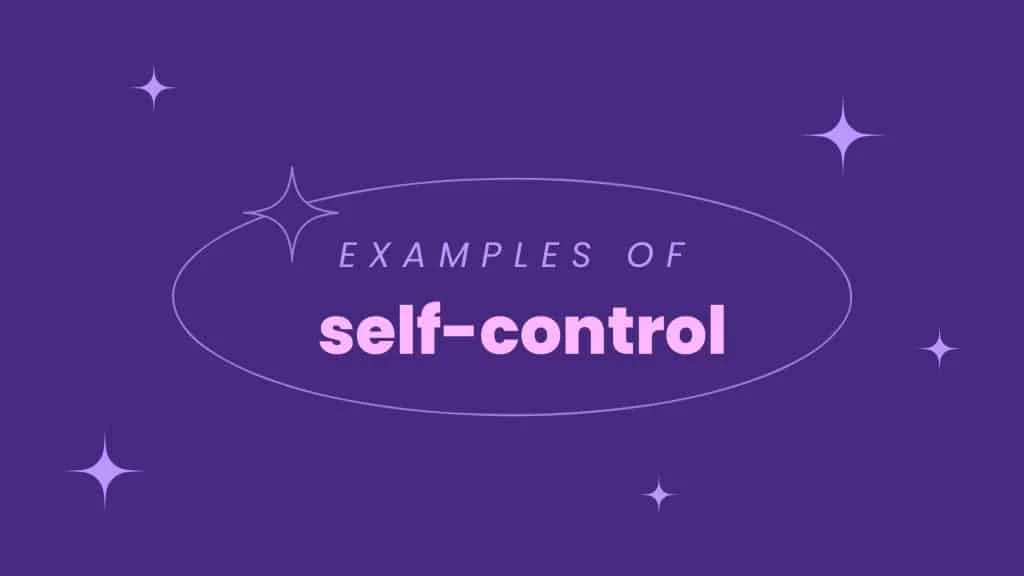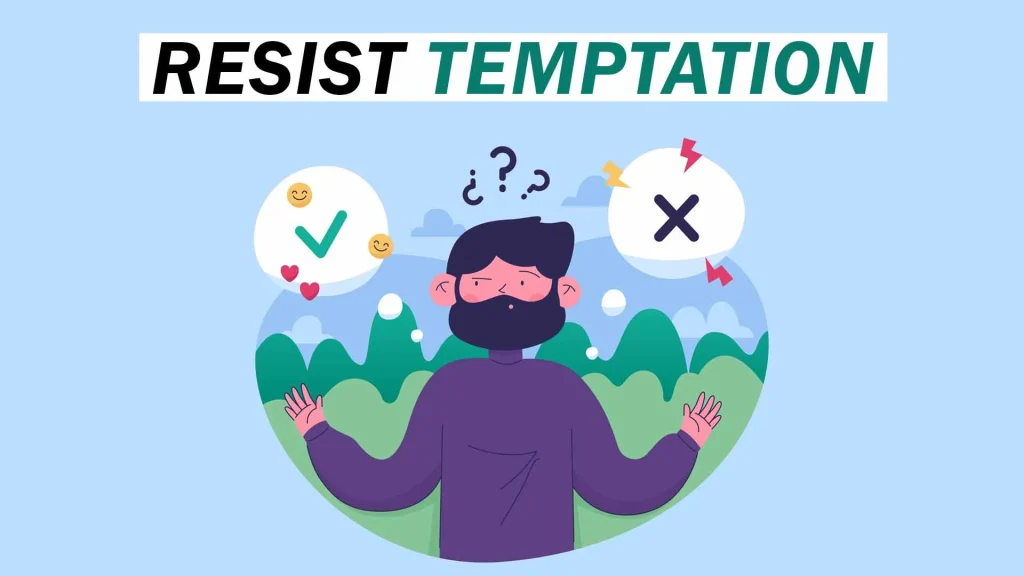The ability to manage your emotions, thoughts, and actions when you are tempted or driven by any form of desire is called self-control. This aspect is highly important for personal growth and greatly affects the attainment of future goals. Better self-control can lead to improved health, richer social life, and more success in many areas.
You can develop this core competency and achieve your dreams in the long run if you learn about its different aspects, appreciate it’s worthiness in your life and take into practice the best strategies.
Types of Self-Control
- Emotional Self-Control: The ability to control your emotions so that you respond appropriately to different situations. For instance, in case of a stressful event, one might choose to breathe deeply, be mindful or count from one to ten before reacting. This kind of self-restraint prevents emotional outbreaks thus maintaining relationships, avoiding conflicts as well as enhancing mental health.
- Behavioral Self-Control: One’s habit and action need to be regulated so that they match with the objectives they want to achieve in future. It involves things like keeping up with an exercise routine regularly not putting things off till later on eating healthy food always etcetera Behavioral self-control requires discipline and consistency which are key for setting personal goals staying healthy and creating productive habits.
- Cognitive Self-Control: The art of directing one’s mind towards something specific without distraction through proper thinking patterns. These include developing clear set goals; focusing on activities that matter most as well as practicing concentration exercises among others. Being able to focus on completing tasks without diversions characterizes a cognitive self-controlled person thus raising productivity levels at work places since related problem-solving skills are enhanced concerning decision-making issues revealing clarity.
Importance of Self-Control
Having a balanced life leading too much satisfaction comes by way of having enough self-control within oneself It enables making right choices about dieting relationships while also enabling you realize ambitions An individual with no self-control has problems saying no to immediate desires that hamper long-term attainments.
Developing self-control helps one do better choices as well as stay goal-oriented in life while facing challenges Positively, this leads to overall health and happiness making it a must-have trait among humans.
Examples of Self-Control

- Avoiding Unhealthy Foods: For example selecting a plate of salad instead of a piece of cake. By choosing this option, the person is considering their long-term wellbeing rather than instant gratification. This type of restraint can result in better overall health and decreased risk for chronic conditions.
- Managing Anger: Instead of reacting angrily when annoyed, one may breathe deeply. Calmness is upheld through things such as controlled breathing and encouraging words to oneself in order to avoid impulse actions. It ensures healthier connections with others hence reducing stress levels.
- Sticking to a Budget: Not buying on impulse but planning your expenditure by setting targets on money matters. Therefore, this form emphasizes on the stability of financial status above short-term fulfillment. This leads to increased savings and financial stability.
- Prioritizing Tasks: Focusing on what’s important while avoiding being distracted from them. For example, someone who completes their assignments before engaging in leisure activities exhibits cognitive self-control .This enhances productivity as well as accomplishment of goals for the future.
- Exercising Regularly: Even when tempted not to go for exercise you should still stick to your program without diverting from it. Physical fitness is improved through this kind of behavioral self-control thus enabling continued good health conditions for an individual .In turn exercising regularly keeps mind and body fit.
- Avoiding Harmful Substances: The temptation not to smoke or drink excessively is resisted. Long term medical issues can be avoided by putting more emphasis on health than momentary pleasures. Healthier lifestyles are enhanced improving chances for getting addicted by applying these principles of restraint herein above discussed points about different techniques that one can use if they want to apply the self-control for instance when someone takes harmful substances like smoking or drugs.
Delayed gratification
When you resist the temptation to have a reward now and instead go for a greater price at the end, then you practice delayed gratification. Everyone does that.When one is able to wait for an improved outcome, it helps them achieve long-term goals and maintain self-discipline.
Marshmallow Test
The Marshmallow Test is an experiment that demonstrates delayed gratification. The children were told about getting a marshmallow now or waiting fifteen minutes to get two more marrows. Consequently, children who could wait had better life outcomes.
This test shows how important delayed gratifications are and how they relate to long term achievements. It emphasizes the necessity of having patients and being disciplined enough to receive future rewards.

Hot-and-Cool System
The “hot-and-cool” system expresses our handling of temptations.Therefore, feel desire but not do anything immediately as some jewelries are so hot that you can only take pictures with them; leave me alone! As such, while one part makes decisions emotionally because it experiences impulses just before taking action, another part makes decisions rationally hence prevents us from slipping into unwise acts.
I will teach you how not to be easily carried away when I talk about developing your cool side.Specifically, by empowering our “cool” system we become capable of improving our self-control since it assists us in managing our urges for instant gratification better than before whereby this model might provide ideas on how we can govern ourselves well-enough in order to make proper choices.
Ego Depletion
Another concept closely associated with ego depletion is that of willpower running out.The more frequently we use it up though; the less amount that remains inside us which is why it’s compared with a muscle. Regular exercise can strengthen it just like any other muscle.
For example, the more self-control is depleted, the harder it becomes to resist temptations or maintain discipline.The signs of ego depletion must be well comprehended and proper measures taken to ensure that your self-control is replenished such as taking breaks and practicing self-care; hence enhance ability to consistently remain disciplined over time.
Health Benefits of Self-Control
- Physical Health: By exercising self-control there are healthier decisions that are made through life such as eating healthy foods and maintaining an exercise schedule. Controlling weight by refusing unhealthy food choices, as well as keeping active, reduces risks for chronic diseases. In general, these habits promote better physical fitness and a stronger immune system.
- Mental Well-being:Lower stress levels and anxiety come with increased self-control capabilities. Emotionally stable people who do not allow themselves to react impulsively toward anything negative have good control over their anger. These techniques include mindfulness meditation which helps someone be calm even when under pressure hence enabling one make sound judgments.
- Longevity: Being aware of the way we live our lives in terms of health has an effect on how long we live.Observe actions that preserve good physical appearance such as staying away from substances that could harm you or keep active constantly leading to avoidance of chronic ailments.These positive habits also increase the body’s resilience against illnesses making one live longer.
- Enhanced Relationships: The principle behind this is simple: if I could get along with you and others much better than before then I would become more successful at work because relationships matter so much in life!One big mistake many people do is letting their emotions ruin everything by showing them out too quickly.By controlling your anger and frustration, you can answer others in a thoughtful manner.This regulation of emotions improves relationships.
- Financial Stability: Making choices regarding money requires some degree of constraint; consequently whether a person exercises this trait will determine his financial stability.It is always important to save, and you can do this by practicing impulse buying that could affect your budget in the long run.Discipline in dealing with money reduces anxiety over financial matters and provides a sense of security.
Improved Academic and Professional Performance
Self-control is important in academic achievement and professional growth. As a result of managing disruptions and staying committed to activities, you get heightened productivity. This kind of devotion can lead to better performance in school and more career opportunities.
Motivation and Monitoring
Self-control requires motivation at all times as well as monitoring your progress. To stay focused on what you are doing, it is better to set smart goals that will help you move step by step. Motivation brings about the willingness to achieve what one has planned while monitoring enables individuals realize whether they are on the right track or not.
Combining this with regular self-assessment helps keep me motivated and on course for meeting my purpose. It also reinforces positive behaviors and encourages continuous improvement.
Get Advice From expert
Listening to expert advice can provide valuable insights and strategies for improving self-control. The podcast includes conversations with psychology experts who share practical tips on how to enhance your self-discipline level.
Learning from others’ experiences gives you ideas on what new practices might be best suited for your life as well as strengthens your internal control abilities thereby making them stronger over time. Regularly looking for educational materials helps me maintain a high level of information about my journey towards achieving better self-governance.
How to Improve Self-Control
Improving self-control is a gradual process involving consistent efforts and practice sessions which should involve:
Avoid Temptation
Remove or distance yourself from sources of temptation. For instance, if you are looking forward to eating healthy foods, ensure that unhealthy snacks do not appear among the shopping items for home consumption.Sticking around an environment which promotes these goals makes someone more likely shun temptations since one maintains discipline.
Strengthening your capacity for refraining from various stimuli can take place when there is limited exposure hence one remains concerned with their future only.

Plan Ahead
Prepare for situations where you might be tempted. This can help keep me on track and enable me make better choices when faced with difficult moments. By thinking about likely obstacles that I could come across, as well as ways to overcome them, I would improve my self-control.
Planning ahead is also useful in terms of establishing sensible limits and coming up with alternative action plans which increase the odds of success.
Practice Using Self-Control
Regularly challenge yourself to practice self-control in small ways. For example, I can choose to take a staircase instead of an elevator or limit screen time every day. These small exercises can build your self-discipline over time. As such, by continuously exercising self-restraint, one becomes more proficient at it thus making its application easier in increasingly substantial instances.
As I gradually improved my behaviors over time through this skillful regulation of my activities.
Focus on One Goal at a Time
To avoid getting overwhelmed by too many things concentrate on achieving one goal at a time.Focus will enhance your chances of success because you are able to channel your energy and attention towards one thing only.When people break down big goals into smaller tasks they are in most cases achievable.
By concentrating on single objectives concurrently instead, I managed to build momentum and confidence thereby enabling me deal with more complicated future challenges.

Meditate
Meditation can help improve self-control by increasing mindfulness and reducing stress. Regular meditation practice can improve your ability to focus and control your emotions, making it easier for you to resist temptations. By creating a state of inner peace and composure, one’s own character is improved up on leading to better decisions.
For values including self-discipline and clearer reasoning, it may be necessary for you to begin cultivating calmness within you which could be boosted through personal deliberations. Meditation as part of the everyday life has lasting advantages especially when it comes to exercising self-control in general.
Remind Yourself of the Consequences
Keep the long-term consequences of your actions in mind. Reminding yourself about what is at stake just makes you stronger on your way towards goals without any drawback. To encourage one’s self towards developing discipline, people should think consistently about possible ramifications that follow their actions.
You can strengthen commitment to achieving long-term objectives by concentrating on the benefit involved with waiting and damage resulting from yielding easily to temptation. As such, delayed gratification becomes an important factor in determining whether or not someone will attain their desired goals over time.
Summary
Improving self-control is an essential skill that can influence many aspects of your life dramatically One way of meeting this goal would be learning different types of self-restraint, recognizing its significance as well as practicing tactics aimed at enhancing it so that individuals realize their future expectations.
The more perceptive efforts one puts into refining his/her own sense of discretion lead him/her closer towards attaining enhanced freedom among other benefits associated with a more balanced life. Through consistent effort and dedication, ones personality development skills become better hence enjoying some advantages relating to increased capacity for self-discipline.
FAQs
What are some examples of self-control?
Examples of self-control include resisting unhealthy foods, such as choosing a salad over a slice of cake, managing anger by taking deep breaths instead of lashing out, and sticking to a budget by avoiding impulse purchases.
How can I improve my self-control?
You can improve self-control by staying away from temptations, planning for difficult situations beforehand, engaging yourself in acts that call for self-restraint on small scale frequently or regularly, having one goal at hand during a given time period only, meditating to develop mindfulness and thinking about future effects before taking an action.
What is the Marshmallow Test?
This study seeks to reveal how delayed gratification works since it shows that children who could wait tended to have better life outcomes highlighting the importance of self-regulation. In marshmallow test experiment young children were forced into choosing between receiving two marshmallows later or just one now.
What is ego depletion?
Ego depletion results in decreased self control as opposed to increased strength by virtue of intrinsic motivation. It becomes harder resisting impulses when someone’s will power fades away; however such awareness facilitates its maintenance thereby leading to discipline.
Why is self-control important?
Self-control helps individuals make decisions concerning their way of eating as well talking others and finally achieving their set goals.

Russell F. Jones, holding a Master in psychology from the University of Florida. He writes for Smart Parent Solutions, offering practical advice on parenting and child development. His engaging content helps parents navigate family life with confidence and ease. Russell enjoys sharing his knowledge and spending quality time with his family.
